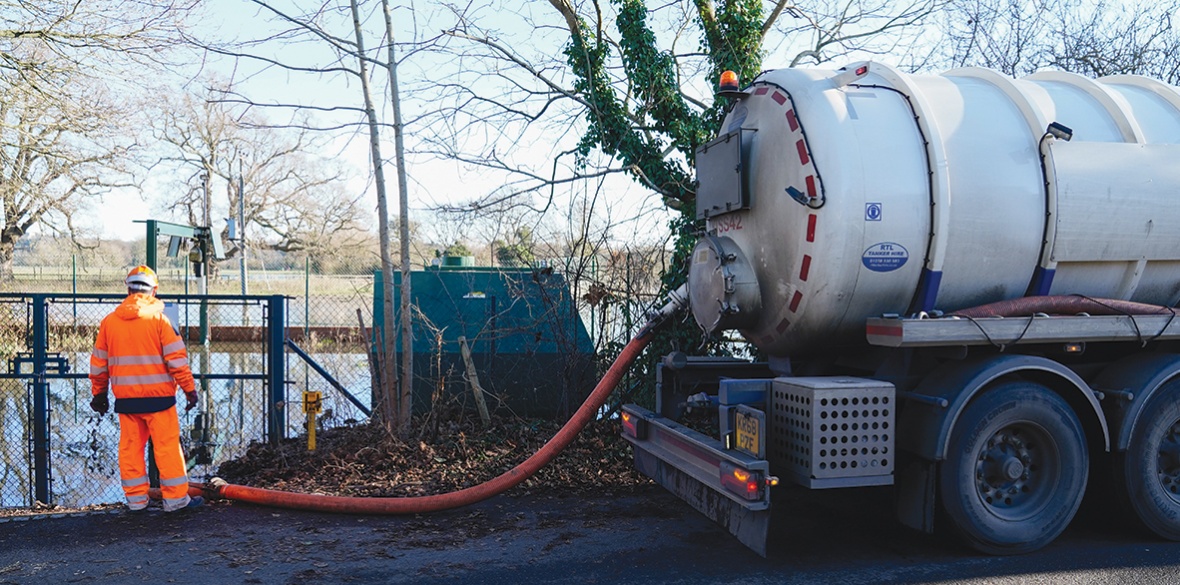This is the last article you can read this month
You can read more article this month
You can read more articles this month
Sorry your limit is up for this month
Reset on:
Please help support the Morning Star by subscribing here
NOT a week goes by without more stories about the scandals and problems besetting Britain’s private water companies, most notably the possible collapse of Thames Water, which is in deep financial trouble, despite taking billions out of the company in loans and dividends.
Disgracefully, it was revealed at the end of 2023 that Thames Water had pumped at least 72 billion litres of sewage into the Thames since 2020.
And it’s not just Thames Water.
As the pop star campaigner on this issue Feargal Sharkey has put it, “Every river in this country is polluted.” And it’s the profiteering private water companies who are to blame.
As the campaign group We Own It say, “Every day, the private English water companies are dumping huge amounts of disgusting raw sewage into our rivers and seas,” and at the same time “the shareholders receive £1.6 billion a year on average — that money could be invested in water infrastructure.”
With Thames and the other water companies performing so abjectly, no wonder that, far from being a fringe demand, public ownership of water is supported by majority public position.
Nationalisation of water was supported by 69 per cent of respondents when asked by both Survation in 2022 and YouGov is 2023, and this number has now grown to 82 per cent.
The case for it is crystal clear. Water ownership is a natural monopoly, there is no market for consumers — and that is why 90 per cent of the world water remains in public ownership, including Scotland.
Publicly owned Scottish Water spends £72 more per household per year (35 per cent more) on infrastructure than the privatised English water companies. If England had invested at this rate, an extra £28 billion would have been spent on tackling problems like leaks and sewage.
Globally, 311 cities and 36 countries brought water back into public hands between 2000 and 2019.
In the example of water — and many other examples of privatisation — we see private companies making obscene profits from what should be public services ran for the people not profit.
These massive sums of money could instead be invested to improve services, to give their workers a pay increase and to lower costs for consumers. In other words, everyone would win other than the polluters and profiteers.
Water nationalisation was established Labour Party policy for a number of years. But just as the situation in the real-world in recent years has made the need for this even more obvious, the front bench has moved further away from it, originally citing a “constrained fiscal environment.”
Now, of course, with Rachel Reeves and Keir Starmer doubling down on neoliberal orthodoxy in government, public ownership isn’t even mentioned by Labour’s front bench as a future possibility.
And as Morning Star readers will know, this is also the case with other parts of the economy, including energy, where the Labour leadership has made clear its intention to again ignore, in government, party conference adopted policy.
Of course, this has nothing to do with courting popularity and everything to do with ideology — 66 per cent support public ownership of energy.
Public ownership in this area is just common sense, privatisation has meant higher bills and colder homes.
Over three million households in England were experiencing fuel poverty earlier this year, with 50 per cent of those surveyed stating that they had turned off heating when it was still cold in order to save money.
Added to this mix now is the government’s insensitive winter fuel allowance cut, plus the energy price cap going up in October, before it goes up again in the new year.
The crises caused by soaring energy bills and the scandal of raw sewage being dumped into rivers have highlighted the magnitude of failure of privatisation for millions up and down the country in a very real way. These have come on top of the problems caused by railway privatisation over recent decades.
This reality offers the left an opportunity to make a strong case for “putting public need ahead of corporate greed.” Advocating public ownership and control also enables us to illustrate in concrete terms how the entire economy could be different, with the needs of people and planet at the forefront.
Despite how awful the new government’s start in office has been, we shouldn’t see the position on issues such as water or energy as something unalterable given the rapidly changing circumstances.
Strong movements rooted in our communities and taking the right initiatives can force real change. One step towards that aim is the building of support for public ownership as part of a popularisation of a socialist economic alternative.
Arise — a Festival of Left Ideas in association with the Morning Star is organising an online event entitled Public Ownership & Control — Key to Tackling the Crises We Face, on Tuesday December 3 at 6.30pm.
Speakers include Jon Trickett MP, Cat Hobbs of We Own It and Ben Chacko. Register at bit.ly/tacklingthecrises.
Sign the petition for water public ownership at weownit.org.uk/act-now/lets-bring-water-public-ownership.











